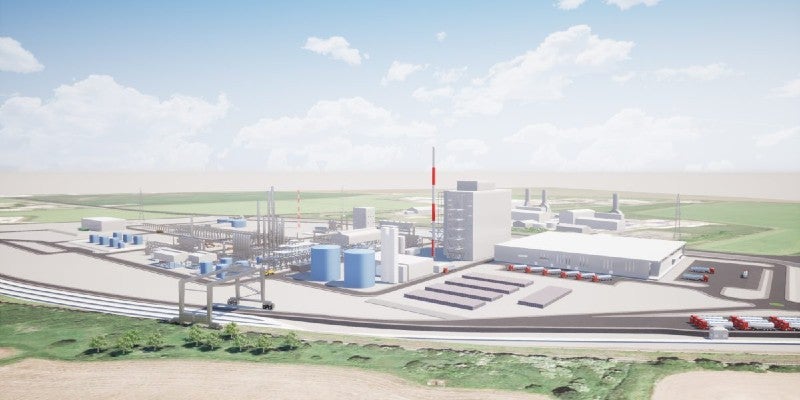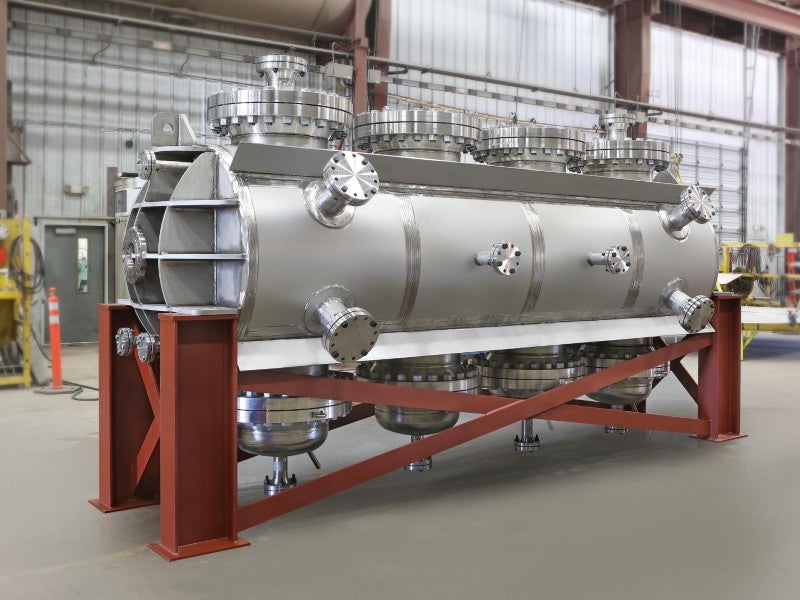
For someone undertaking what appears to be a herculean task – creating sustainable jet fuel that meets stringent global specifications from what is essentially everyday black bag household waste – Dr Neville Hargreaves is remarkably sanguine about his work at sustainable fuel company Velocys.
“Jet fuel is hugely concentrated. It took nature millions of years to create the crude oil that we distil for use in today’s commercial passenger flights – we are trying to do it in real time,” he explains.
And all the while the climate clock is ticking. The Guardian reports that analysis by the International Council on Clean Transportation (ICCT) reveals CO2 emissions from commercial flights worldwide are increasing up to 70% faster than predicted by the UN’s International Civil Aviation Organisation.
CO2 emitted by airlines increased by 32% from 2013 to 2018 – the total increase being equivalent to building around 50 coal-fired power plants – according to the ICCT report. The study reveals the UK is responsible for 4% of global aviation CO2 emissions, behind only the US (24%) and China (13%).
Hargreaves believes there is hope, however, and that the recent formation of the Jet Zero Council – a coalition of government ministers, businesses, trade bodies and environmental groups – is a crucial step on the journey towards making zero-carbon transatlantic flights a reality within a generation.

“I sit on the Jet Zero Council and Velocys is proud to be part of it,” he states. “Think back a couple of years – many people thought aviation wouldn’t bother with decarbonisation. Now, with Jet Zero, it is recognised as a critical issue and that the aviation sector can – and must – play its part. This shared sense of ambition is hugely important and will inform both government policy and business strategy.
“People may think achieving net-zero emissions on long-haul flights, from London to New York on a Dreamliner say, is decades away – it isn’t,” he adds. “We can achieve this in the next five-ten years.”
Chemical reaction: turning waste into sustainable fuel
Stirring words, and Velocys believes it has developed the technology to back them up in the shape of the world’s most compact, commercially ready reactor for Fischer-Tropsch (FT) synthesis, a catalytic chemical reaction that turns synthesis gas such as carbon monoxide and hydrogen into jet fuel.
At present, almost all jet is distilled from crude oil. The only sustainable aviation fuels available today are made on a small scale from the hydrogenation of vegetable oils – which, as Hargreaves points out, is energetically effective but has a limited feedstock.
In order to really transform the aviation industry and supply airlines with the volume of sustainable fuel they need to meet increasing passenger demand, a much broader set of feedstocks is required.
Demonstrated at full scale in the real world, the Velocys reactor produces advanced aviation biofuels from large, sustainable carbon sources such as household waste, as well as agricultural and forest residues.
“First, the solid waste is sorted and separated; recyclables, such as metals and glass, and stones that can be made into aggregates are removed; and we end up with a fairly homogenous feed,” explains Hargreaves. “That goes into a gasifier, which breaks down all the carbon-containing material into a single carbon atom, namely carbon monoxide. This is combined with hydrogen and the resulting ‘synthesis’ gas is cleaned to remove any impurities before being converted to hydrocarbons using our own technology.
“Finally, there is the hydrocracking step, which is a conventional refinery process. By applying these steps in sequence, we are able to transform a heterogeneous starting material that is of negative value – we get paid to take the waste away – into a very high-value sustainable aviation fuel that can be used straight away in today’s aircraft without any modifications or changes to infrastructure.”
Net profits: the goals of the Jet Zero Council
The project is funded by a combination of private sector investment from the likes of Shell and British Airways, and government grants totalling £900,000 from the UK Department of Transport.
So far, so impressive, but what sets the Velocys technology apart from other recent innovations in the sphere of sustainable fuels? And when the Jet Zero Council and Velocys say they aspire to ‘net-zero carbon emissions’, what does that mean in the context of commercial aviation?
“There are not many ways of decarbonising aviation that are available at commercial scale right now, particularly for large-scale, long-haul aircraft,” says Hargreaves. “There have been trials of small battery-powered planes over short ranges or for urban air mobility, but I haven’t met anybody who thinks that electric technology is the answer for long-haul flights, at least not for several decades. However, decarbonising the first long-haul flights within this decade is definitely achievable.
“As for the Jet Zero Council, the manifesto is clear: net-zero life cycle emissions from aviation,” he continues. “In other words, the whole business of operating an aircraft, taking airline passengers from A to B, must not ultimately increase the amount of greenhouse gas in the atmosphere.
“However, we need to get away from the misconception that net-zero means you can’t have any carbon-containing fuel on board, that it has to be ‘tail-pipe zero’ – that is not the same thing at all.”
The Velocys plant will generate CO2 during the conversion process, which the company hopes to get rid of using a proposed carbon capture and storage (CCS) facility near its Immingham site on the Humber Estuary.
“Most of the sustainable fuel we produce came from biomass, and to the extent that we use energy in the conversion we will make that up with CCS – that is how we get to net-zero,” says Hargreaves.
Cost of sustainability: funding the ‘greener restart’
Clearly, there is a price point here. Fuel innovation is critical to the decarbonisation of air travel, but not if it is so prohibitively expensive that airlines – which, according to IATA, already stand to lose more than £66bn this year in the wake of Covid-19 – cannot afford it at the volumes they require.
“Governments must set a realistic price on carbon, whether that is through a global price or more specific mandates for sustainable aviation fuel and/or price support for it,” explains Hargreaves.
“In the UK, the Renewable Transport Fuels Obligation does a reasonable job of making it possible for an airline to be able to afford to buy sustainable fuel and not be undercut by their competitors, and for the cost gap between sustainable and conventional jet fuel to be bridged for producers like us.”
Hargreaves also believes that passengers must advocate the use of genuinely sustainable measures that directly mitigate aviation emissions and not just salve their consciences with carbon offsetting.
Planning permission for Velocys’s first commercial waste to fuels commercial plant was granted in June and the company plans to start manufacturing its sustainable aviation fuel as soon as 2025. It aims to be part of the ‘greener restart’ that the aviation industry so badly needs in the wake of the pandemic.
“The key concept is that life cycle net-zero is absolutely realistic and then linking that to the green recovery as something that can, and needs to, be done,” Hargreaves says. “That is a really valuable message to get across and for the public to get excited about. Our job is to help make it happen.”



